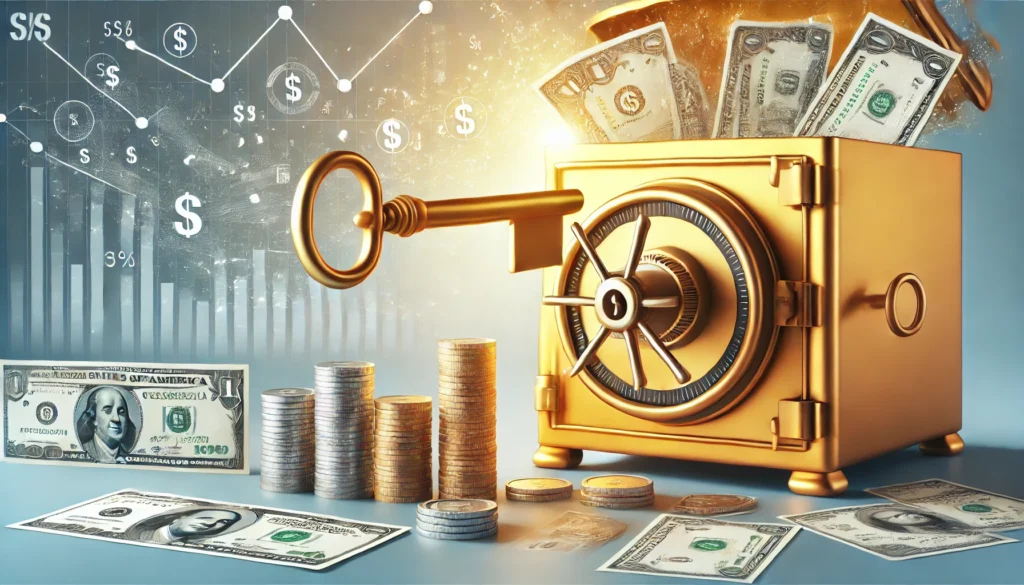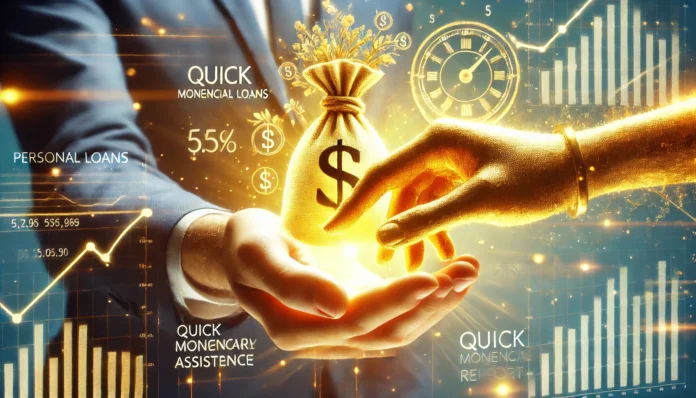Understanding Economic Relief Personal Loans and Their Role in Debt Management
For many individuals struggling with student loan debt and everyday financial obligations, the concept of an economic relief personal loan can serve as a lifeline. These financial instruments are designed to provide quick access to funds, helping borrowers manage their monthly expenses, consolidate existing debt, and maintain financial stability. Understanding how these loans work, their advantages and drawbacks, and their proper usage can make the difference between achieving financial relief and accumulating unmanageable debt.
You may also like: Federal Direct Consolidation Loan: A Smart Strategy to Simplify Student Debt
Economic relief personal loans are typically unsecured, meaning they do not require collateral. Because of this, lenders assess borrowers based on their creditworthiness, income stability, and repayment ability. While these loans are often marketed as solutions for those struggling with financial burdens, it is essential to evaluate the terms, interest rates, and repayment structures before committing. Borrowers must also consider how these loans fit into their broader financial strategy to avoid exacerbating existing debt.

The Connection Between Economic Relief Personal Loans and Student Debt
Student loan debt in the United States continues to be a pressing concern, with millions of borrowers facing high monthly payments that make it difficult to meet other financial obligations. For graduates who are struggling, an economic relief personal loan can be a temporary solution to cover essential expenses or consolidate higher-interest debt. These loans may help individuals who find themselves in situations where their student loan payments consume a significant portion of their monthly income.
One primary way personal loans help with student debt is through consolidation. Many borrowers have multiple student loans with varying interest rates and repayment schedules, making it difficult to manage payments effectively. By using a personal loan to consolidate debt, borrowers may secure a lower interest rate, simplify their payments, and create a more structured repayment plan. However, it is crucial to ensure that the terms of the personal loan are favorable compared to the original student loans, as shifting debt without long-term savings can be counterproductive.
Additionally, personal loans can be useful in covering emergency expenses when student loan payments make it difficult to handle unexpected financial burdens. Instead of missing payments or accumulating high-interest credit card debt, a borrower may use a personal loan with a structured repayment plan. However, responsible borrowing is necessary, as taking on new debt without a repayment strategy can lead to financial instability.

Pandemic Emergency Loans for Bad Credit: Options and Considerations
The financial strain caused by the COVID-19 pandemic led to an increased demand for pandemic emergency loans for bad credit. These loans were introduced as temporary relief options to assist individuals facing job loss, reduced income, or unexpected expenses. For borrowers with poor credit, securing traditional loans can be challenging, which is why specialized emergency loans became a viable solution during uncertain times.
While these loans provide much-needed financial relief, they often come with higher interest rates due to the increased risk to lenders. Borrowers must carefully evaluate loan terms, repayment periods, and potential penalties before accepting an offer. Some financial institutions and online lenders offer flexible repayment options and lower interest rates for individuals who demonstrate financial responsibility. It is advisable to compare lenders, read the fine print, and ensure that loan payments align with one’s budget to avoid falling deeper into debt.
For student borrowers, pandemic emergency loans for bad credit served as a way to keep up with basic living expenses while job markets fluctuated. Many lenders adapted their policies to accommodate borrowers who experienced financial setbacks, providing deferment options and modified repayment plans. While the pandemic-era loans may not be as widely available today, the financial lessons from this period emphasize the importance of preparing for emergencies and maintaining an adaptable financial plan.

How Loans to Help Pay Bills Can Support Financial Stability
Many individuals struggling with monthly expenses explore loans to help pay bills as a way to manage financial obligations effectively. These loans can cover essential expenses such as rent, utilities, medical bills, and groceries. While they provide temporary relief, they should be used strategically to prevent over-reliance on borrowed funds.
For borrowers with high student loan payments, these loans can be a tool for managing short-term financial strain. However, it is important to assess whether these loans will improve one’s financial situation in the long run. For example, if the loan’s interest rate is significantly higher than the debt being covered, it may create an additional financial burden rather than providing relief. Borrowers should consider alternative solutions such as budgeting adjustments, negotiating payment plans with service providers, or seeking financial counseling before turning to loans as a primary solution.
Developing a Smart Repayment Strategy
Taking out a personal loan to manage student debt or pay bills is only beneficial if paired with a solid repayment strategy. Borrowers should start by reviewing their monthly budget, identifying areas where expenses can be reduced, and ensuring that new loan payments fit within their financial plan. It is also important to compare loan options carefully, considering interest rates, repayment terms, and any associated fees.
For individuals who use loans to consolidate student debt, choosing a loan with a lower interest rate and favorable terms can save money over time. Additionally, making extra payments when possible can reduce the overall cost of borrowing. Setting up automatic payments can also prevent missed payments and improve credit scores, making it easier to qualify for better financial products in the future.
Financial literacy plays a key role in managing debt effectively. Understanding how different loan products work, their long-term impact, and alternative financial strategies can empower borrowers to make informed decisions. Seeking guidance from financial advisors or using online financial tools can provide additional support in creating a sustainable financial plan.
Frequently Asked Questions (FAQ)
What are some unexpected benefits of taking an economic relief personal loan?
An economic relief personal loan can provide more than just immediate financial assistance; it can also improve financial stability in the long run. For instance, timely repayment of such a loan can help rebuild or strengthen your credit score, making future borrowing more affordable. Additionally, these loans can serve as a financial buffer, allowing individuals to redirect other funds toward savings or investments. Many lenders also offer flexible repayment options, giving borrowers the ability to adjust payments based on their changing financial circumstances. Finally, by using an economic relief personal loan to consolidate higher-interest debt, borrowers can simplify their finances and potentially reduce overall interest costs.
How can pandemic emergency loans for bad credit help beyond immediate expenses?
While pandemic emergency loans for bad credit are often sought for urgent needs like rent or utilities, they can also serve as a foundation for long-term financial recovery. Borrowers can use these loans to cover essential certifications or training programs that enhance job prospects. Additionally, some individuals leverage these funds to start small businesses or side hustles, generating future income. For those struggling with multiple debts, using these loans to consolidate payments into a single, more manageable monthly obligation can prevent further financial distress. Moreover, successfully managing pandemic emergency loans for bad credit demonstrates financial responsibility, improving credibility with lenders for future borrowing opportunities.
What factors should you consider before applying for loans to help pay bills?
Before applying for loans to help pay bills, it’s crucial to evaluate interest rates and repayment terms to ensure affordability. Borrowers should also consider their ability to meet payment obligations without further financial strain. Exploring different lenders can reveal variations in eligibility criteria and potential benefits like lower fees or more flexible terms. Understanding the total cost of borrowing, including hidden fees or penalties for early repayment, is also essential. Lastly, considering alternative financial solutions such as negotiating payment plans with creditors may provide a less expensive way to manage bills without additional debt.
Are there specific lenders that specialize in economic relief personal loans for self-employed individuals?
Yes, some lenders cater specifically to self-employed individuals seeking an economic relief personal loan. These lenders often consider alternative income verification methods, such as bank statements or tax returns, instead of traditional pay stubs. Additionally, self-employed borrowers may have access to specialized repayment structures that align with fluctuating income patterns. Some financial institutions even offer personalized loan counseling to help self-employed individuals manage their debt effectively. Exploring these tailored loan options can be particularly beneficial for entrepreneurs and gig workers looking to stabilize their finances.
How do pandemic emergency loans for bad credit impact credit scores in the long term?
Pandemic emergency loans for bad credit can influence credit scores in both positive and negative ways. On the positive side, making consistent on-time payments improves credit history and demonstrates reliability to future lenders. Conversely, missing payments or defaulting on the loan can further damage an already weak credit profile. Additionally, the way the loan is reported to credit bureaus—whether as a revolving credit line or an installment loan—can also affect how it impacts the credit score. Borrowers should check whether their lender reports payments to credit agencies, as this ensures their responsible repayment behavior is recognized. Over time, properly managed pandemic emergency loans for bad credit can serve as a stepping stone toward stronger financial health.
Can loans to help pay bills be used for unexpected business expenses?
Yes, loans to help pay bills can be used for unexpected business expenses, particularly for small business owners or freelancers facing cash flow gaps. Whether it’s covering urgent inventory costs, maintaining payroll, or dealing with unforeseen repairs, these loans provide a quick financial lifeline. Many lenders allow borrowers to allocate the funds flexibly, ensuring they can address their most pressing financial needs. Additionally, using such loans responsibly can help businesses maintain operational stability during uncertain times. However, borrowers should ensure that the repayment terms align with their business income patterns to prevent future financial strain.
How do interest rates for economic relief personal loans compare to other borrowing options?
Interest rates for an economic relief personal loan tend to vary based on creditworthiness, lender policies, and economic conditions. Generally, these loans may have lower interest rates than payday loans or credit card cash advances, making them a more cost-effective option for borrowers in need. However, rates may be higher than those offered for secured loans, as personal loans are typically unsecured. Borrowers with strong credit may qualify for competitive rates, while those with poor credit might face higher charges. Shopping around and comparing offers can help secure the most favorable terms.
What repayment strategies work best for pandemic emergency loans for bad credit?
The most effective repayment strategy for pandemic emergency loans for bad credit involves prioritizing timely payments to avoid penalties and additional interest. Borrowers should create a structured budget that includes their loan obligations as a fixed expense. Refinancing or renegotiating loan terms with lenders can also be beneficial if financial circumstances change. Some individuals use windfalls, such as tax refunds or bonuses, to make extra payments and reduce the loan balance faster. Additionally, setting up automatic payments can ensure timely repayment and prevent missed payments that could harm credit scores.
What are some alternatives to loans to help pay bills if you have limited borrowing options?
If obtaining loans to help pay bills isn’t feasible, there are several alternatives worth considering. Negotiating with service providers or creditors to arrange payment extensions or lower interest rates can provide immediate relief. Community assistance programs and nonprofit organizations often offer grants or financial aid for essential expenses. Gig economy work, such as freelance projects or temporary side jobs, can provide an extra income stream without additional debt. Additionally, selling unused assets or cutting discretionary spending can help bridge financial gaps in the short term. Exploring these options may reduce financial strain without incurring further obligations.
How can borrowers protect themselves from predatory lending practices when seeking an economic relief personal loan?
To avoid predatory lending, borrowers should thoroughly research lenders and read all loan terms before signing any agreement. Warning signs of predatory lending include excessively high interest rates, hidden fees, and aggressive sales tactics. It’s advisable to choose reputable lenders that are transparent about costs and offer reasonable repayment terms. Consulting financial professionals or using online comparison tools can also help borrowers make informed decisions. By staying vigilant and informed, individuals can secure an economic relief personal loan that supports their financial goals without undue risk.
Conclusion: Making Informed Financial Choices
Economic relief personal loans, pandemic emergency loans for bad credit, and loans to help pay bills can all play a role in achieving financial stability when used responsibly. However, the key to leveraging these financial tools effectively lies in careful planning, thorough research, and disciplined financial management. Borrowers should always assess their needs, explore alternative financial solutions, and ensure that any loan they take on contributes to long-term financial health rather than short-term relief with lasting consequences.
By understanding the nuances of these loan options and integrating them into a comprehensive financial strategy, individuals can navigate student debt, manage daily expenses, and work toward greater financial independence. Whether consolidating debt, covering emergency expenses, or securing temporary relief, informed decision-making ensures that financial resources are used wisely and effectively.
financial planning, student debt management, loan consolidation, emergency financial assistance, credit management, alternative lending solutions, budget planning, financial literacy, responsible borrowing, economic relief programs, debt relief strategies, pandemic financial assistance, credit score improvement, personal finance solutions, budgeting for graduates, online loan options, loan interest rates, financial independence, money management, structured repayment plans
Further Reading:
Government debt help schemes and solutions
The information provided in this article is for general informational purposes only and is not intended to constitute financial, investment, legal, tax, or other professional advice. The content should not be relied upon for making any financial or investment decisions. Readers are encouraged to consult with licensed professionals, such as financial advisors, attorneys, or tax experts, to obtain personalized advice tailored to their individual circumstances. The author and publisher disclaim any liability for any actions taken or not taken based on the information provided in this article.





